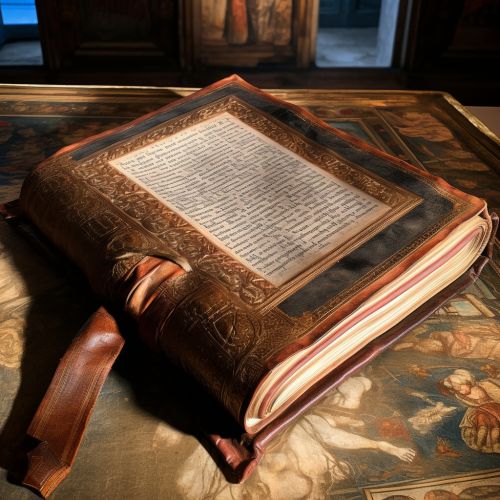Biblical canon
Introduction
The Biblical canon refers to the set of books that a particular Christian religious group regards as authoritative scripture. The term "canon" comes from the Greek word "kanon," meaning "rule" or "measuring stick." Christians were the first to use the term in reference to scripture, but Eugene Ulrich regards the idea as Jewish.


Old Testament Canon
The Old Testament is the first section of the Christian Bible, based primarily upon the Hebrew Bible, a collection of ancient religious Hebrew writings by the Israelites. The term "Old Testament" is derived from the Latin Old Covenant, a translation of the Greek Old Agreement, which is derived from the Hebrew Bible.
The books of the Old Testament were written probably between 1200 and 100 BC, and contain narratives, laws, proverbs, psalms, and prophecies. The Old Testament canon varies between Christian denominations; Protestants accept only the Hebrew Bible's canon but divide it into 39 books, while Catholics, the Eastern Orthodox, Coptic and Ethiopian churches accept a larger canon.
New Testament Canon
The New Testament is the second part of the Christian biblical canon. The New Testament discusses the teachings and person of Jesus, as well as events in first-century Christianity. The original texts were written in first-century Koine Greek.
The New Testament canon is the collection of books that most Christians regard as divinely inspired and constituting the New Testament of the Christian Biblical Canon. In most, if not all, Christian denominations, the New Testament consists of 27 books.
Development of the Old Testament Canon
The process by which scriptures became canons and Bibles was a long one, and its complexities account for the many different Old Testaments which exist today. Timothy H. Lim, a professor of Hebrew Bible and Second Temple Judaism at the University of Edinburgh, identifies the Old Testament as "a collection of authoritative texts of apparently divine origin that went through a human process of writing and editing."
He states that it is not a magical book, nor was it literally dropped from heaven. The book that people today call the Bible did not just appear in its entirety. It was written, edited, and collected by people.
Development of the New Testament Canon
The development of the New Testament canon was, like that of the Old Testament, a gradual process. Irenaeus (died c. 202) quotes and cites 21 books that would end up as part of the New Testament, but does not use Philemon, Hebrews, James, 2 Peter, 3 John and Jude. By the early 3rd century Origen of Alexandria may have been using the same 27 books as in the modern New Testament, though there were still disputes over the canonicity of Hebrews, James, II Peter, II and III John, and Revelation.
Canonization
Canonization is the process by which a Christian community determines that a book was inspired by God and should be included in the canon of scripture. The idea of a completed bible is from the year 140 AD, and is a product of the self-definition of the Christian community.
Protestant Canon
The Protestant canon consists of the 39 books of the Old Testament and the 27 books of the New Testament. The Old Testament books are ordered differently in the Catholic/Orthodox/Protestant tradition, the Slavonic tradition, the Syriac tradition and the Ethiopian tradition.
Catholic Canon
The Catholic canon includes the books of the Old Testament and New Testament, and seven books of the Old Testament that are not included in the Protestant canon. These additional books were added at the Council of Rome in 382 AD.
Orthodox Canon
The Orthodox canon includes the books of the Old Testament and New Testament, and several books of the Old Testament that are not included in the Protestant canon. The Orthodox Church has slightly more books in its Old Testament canon.
Coptic Canon
The Coptic canon, used by the Coptic Church, includes the books of the Old Testament, New Testament, and several additional books. The exact number of these additional books varies between different Coptic traditions.
Ethiopian Canon
The Ethiopian canon, used by the Ethiopian Orthodox Church, has the most extensive Old Testament canon and also includes some books that are held canonical by only the Ethiopian Church.
